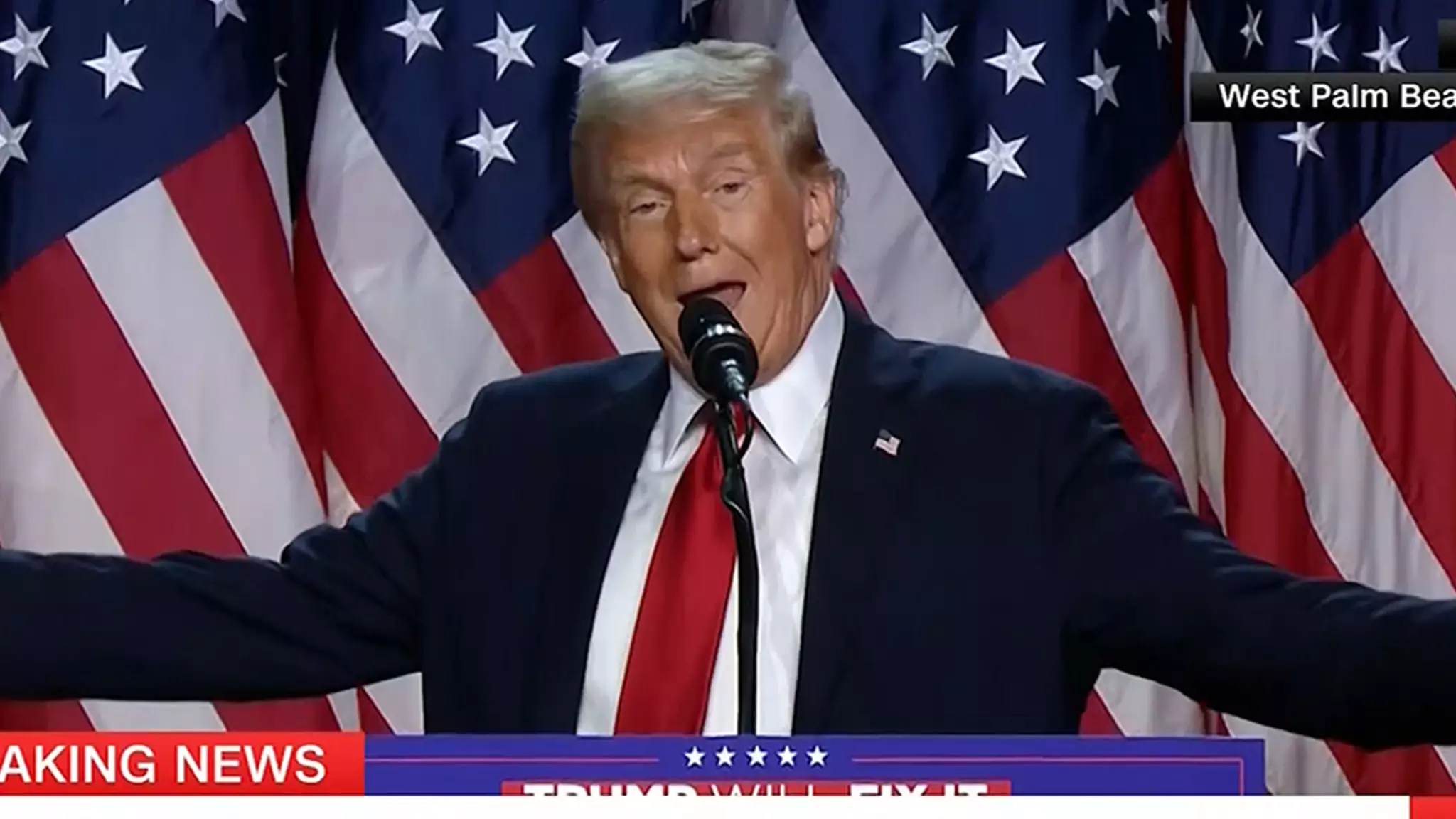The recent announcement of Donald Trump winning the 2024 presidential election marks a significant moment in U.S. political history. Trump’s victory was confirmed by FOX News shortly before midnight PST, with projections indicating he surpassed the crucial 270 electoral votes needed for a win. This development is not just another electoral milestone; it symbolizes a remarkable and, some would argue, polarizing return to power for the former president.
The backdrop to this victory was a contentious and often divisive campaign season. Trump’s ability to galvanize support, particularly among disenfranchised voters and traditional Republican bases, stands out. His running mate, J.D. Vance, and he took the stage in West Palm Beach soon after the election was called, suggesting a proactive approach to leadership right from the onset. Trump’s assurances about healing divisions in the nation demonstrate his awareness of the fractured state of American society.
Analyzing the electoral map reveals that Trump’s strategy was effectively centered on pivotal swing states like Georgia and North Carolina, which traditionally hold significant sway in determining the presidency. The return to power for the GOP also had implications for Congress; Trump’s win would solidify Republican control over both houses, creating the potential for an agenda aligned closely with his previous policies.
Trump’s victory speech was marked by a mix of celebration and reflection. He acknowledged his wife, Melania, and noted key endorsements that played a role in his resurgence, including figures like Robert F. Kennedy Jr. and Elon Musk. This not only reflects Trump’s well-known strategy of building alliances but also hints at a potential shift in coalition dynamics within the Republican Party.
Trump’s election is particularly historic because he not only joins Grover Cleveland as the only president to reclaim the office after leaving it but also becomes the first individual with a felony conviction to ascend to the presidency. This reality complicates traditional narratives around American leadership and legality, raising questions about the coexistence of moral and legal governance in the political landscape.
Interestingly, Trump’s impending sentencing was scheduled shortly after his triumph, highlighting the paradoxical nature of his political journey. The electoral downpour has rendered those legal challenges temporarily moot but raises broader questions about accountability and the rule of law in politics.
As Trump prepares to enter the White House once again, the expectations surrounding his administration are monumental. He has pledged to tackle the issues plaguing the American populace, citing a need for unity amid stark divisions. However, skeptics might argue that the very polarization that characterized his campaign is likely to persist.
The validation of Trump’s approach during a time of national crises—both politically and socially—will be under scrutiny as he embarks on his second term. As the initial excitement fades, the reality of governance will soon overshadow the celebratory rhetoric, presenting Trump with the formidable challenge of fulfilling the promises made to an anxious electorate.
Trump’s 2024 victory encapsulates a complex narrative of American politics where traditional norms are continuously being redefined. Understanding this election results in broader discourse about democracy, accountability, and the evolving dynamics within the United States.

